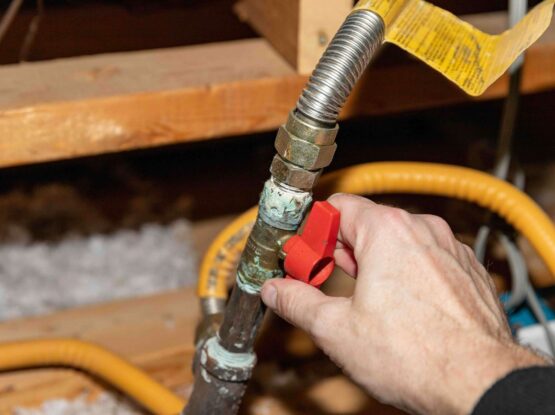Understanding the Role of Gas Lines in Canton Household Safety
Exploring the Importance of Gas Lines in Ensuring Safety in Canton Homes
Delving into the Vitality of Gas Lines for Canton Household Safety
Embarking on the Significance of Gas Lines in Safeguarding Canton Households
Unveiling the Crucial Role of Gas Lines in Promoting Safety in Canton Residences
The Importance of Gas Lines in Your Canton Home
Before understanding the role of gas lines in household safety, it’s important to first recognize the significance of gas lines in Canton homes. Almost every household in Canton relies on natural gas for heating, cooking, and other essential tasks. While natural gas is a convenient and cost-effective energy source, it can also pose some serious safety concerns.

Understanding Gas Lines and their Purpose
Gas lines are used to deliver natural gas from the supplier to various appliances throughout your home. These lines are made up of steel, copper, or flexible tubing and are typically buried underground. The gas lines in your home are connected to a meter that measures your energy usage and is often located outside your home. From the meter, gas lines run through your walls and floors to stoves, ovens, furnaces, water heaters, and other gas-powered appliances.
The Dangers of Gas Leaks
The main safety concern with gas lines is the potential for gas leaks. Natural gas is odorless, so manufacturers add a harmless chemical called mercaptan to give it a distinct rotten egg smell. This foul smell serves as a warning sign and allows you to detect a gas leak before it becomes a serious hazard. Gas leaks are especially dangerous because natural gas is flammable and can cause fires or explosions, leading to property damage, injuries, and even fatalities.
Regular Maintenance and Inspections Are Key
To ensure the safety of your gas lines and your household, it’s essential to have them regularly inspected and maintained by a professional. Experienced technicians can detect and fix any issues before they become major problems. Additionally, if you’re moving into a new home, it’s crucial to have the gas lines thoroughly inspected before using any gas-powered appliances.
What to Do in Case of a Gas Leak
If you suspect a gas leak in your home, it’s important to act quickly and take necessary precautions. First and foremost, evacuate your home and call your gas company immediately. Do not use any electronics, turn off the gas supply at the meter if you know how to, and avoid any open flames or sparking devices. It’s better to err on the side of caution and get out of your home even if you’re not completely sure of a gas leak.
In conclusion, understanding the role of gas lines in household safety is crucial for any Canton homeowner. Gas lines play a significant role in delivering natural gas to our homes, but they can also pose some serious safety risks if not maintained properly. Regular inspections and maintenance by professionals are fundamental in ensuring the safety of your gas lines and your household. Being aware of the dangers of gas leaks and taking necessary precautions can also prevent potential disasters. Stay informed and prioritize the safety of your gas lines to keep your home safe.
